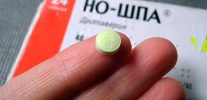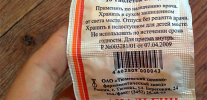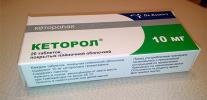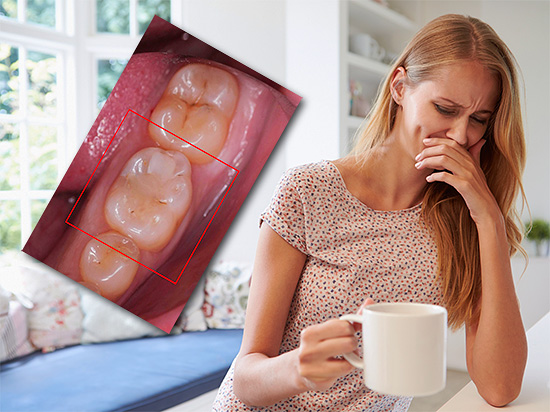
Toothache during pregnancy in many cases is the result of a widespread misconception that a pregnant woman cannot go to the dentist. People's opinion about this is as follows: treatment at the dentist is dangerous for the fetus, and the expectant mother should definitely be reached before childbirth, and only then do something to treat the teeth.
It is difficult to say how many healthy teeth were ditched due to such a misconception. After all, the fear of going to the dentist is the most serious enemy, both for the most pregnant woman and for her fetus, which affects her mother's well-being directly. In fact, the first thing to do if you have a toothache during pregnancy is to make an appointment with a good dentist.
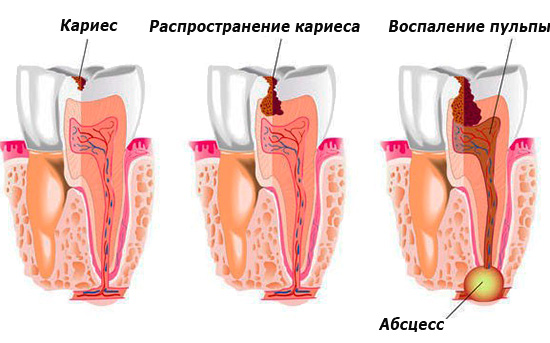
Remember: only a specialist can correctly assess the situation and decide what needs to be done in each particular case (and whether it is necessary to do something at all).After all, the situations are very different, and sometimes really urgent treatment is required. When a tooth hurts and the expectant mother, without adequate experience and understanding, makes a decision on her own to let the problem take her course, this often leads to very serious consequences: from fluxes to life-threatening phlegmon and sepsis.
Up to 35-36 weeks of pregnancy, teeth can be easily treated, and today in the arsenal of dentists there are effective and safe means that allow anesthetizing a tooth during the manipulation with absolutely no harm to the fetus. If it is just a matter of caries treatment, without damage to the pulp inside the tooth, without purulent inflammation of the gums and other complications, then the corresponding dental intervention will be generally minimal, and you should not be afraid of it.
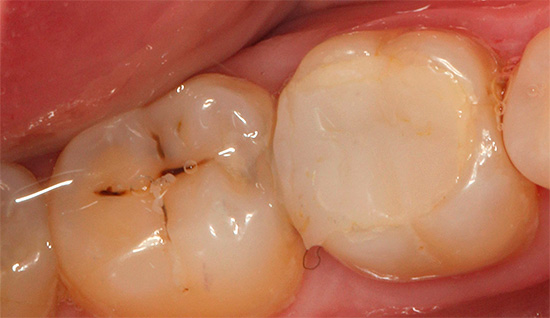
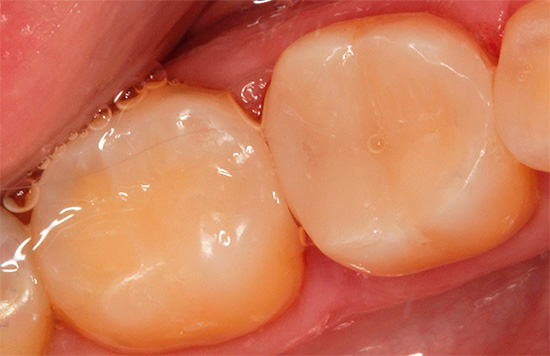
Only in rare cases, at the very last stages of pregnancy, or when a woman lies on conservation, the dentist may not carry out the treatment, and prescribe only painkillers for a short time. But then again, even in the telephone mode, the doctor should do it: you should not self-medicate with strong toothaches, hoping to be patient until the end of the pregnancy.
On a note
With difficulty, a wisdom tooth erupting during pregnancy can cause a lot of trouble: if there is an inflammatory process and suppuration under the gingival hood, then in no case should you expect that everything will resolve itself. It will be much safer for your health and the developing fetus to make an appointment with a doctor.
Unfortunately, practice shows that if pregnant women develop toothache, in most cases they still refuse to visit the dentist, especially in the first weeks of pregnancy. In such cases, the teeth often hurt from caries in the early and middle stages, which can be cured without any risk to the fetus, keeping the tooth alive. But for childbirth, this caries often has time to develop into pulpitis, when it is no longer possible to keep the tooth alive. In addition, pulpitis in the absence of timely treatment can develop into more serious complications - for example, periodontitis or periostitis.
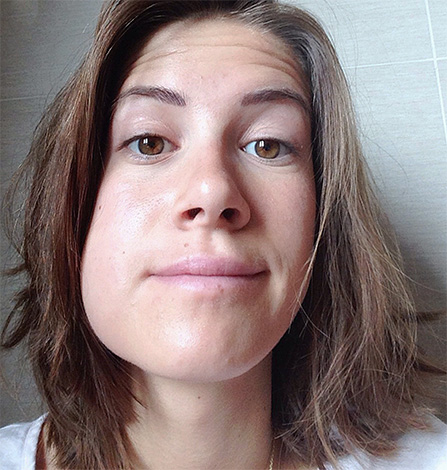
Feedback
“My terrible situation was with the first child. The tooth began to hurt early enough, but not very much, so I decided not to go to the dentist with the stomach. I suffered at first, I thought that it would pass. It did not pass.Already somewhere on week 22-23, I sometimes had to drink aspirin, but it was still tolerable.
But in the later periods such pain began that it was a feeling that a bolt was simply screwed into a tooth. Nightmare, I wanted to climb the walls, did not know what to do. 38 week, I have been waiting for contractions from day to day, the bag is collected in the maternity hospital, and here it is. Then pus dripped and spread his cheek. And I understand that I cannot go to the dentist - what if everything starts there. And in a maternity hospital in such a state it is scary to go.
In short, a friend persuaded me, she herself took me to a good dentist. He, of course, looked at me like I was crazy. Something sprinkled, opened the abscess, it was just horror, how much flowed out, but it was not painful. He put some medicine, said that if the contractions do not start, then you need to come the next day. So a week to him and went with a girlfriend or husband.
When she gave birth, already no toothache, no inflammation was not. Now I only understand that if I went with the first lumbago, I would have put a seal and there would be no problem. ”
Victoria, Kiev
So, if your teeth hurt during pregnancy, the first thing to do is to call your doctor. And only if he advises to relieve toothache at home, then apply the appropriate "improvised" methods.
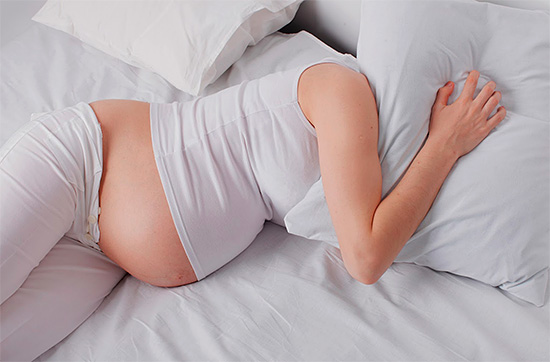
For such home anesthesia is usually used several types of tools ...
Warm gargles are a simple and safe way to relieve a toothache.
To relieve a sharp toothache, doctors often advise warm rinses. During pregnancy, this method is good primarily because it is absolutely safe, and gives, although not complete, but rather pronounced effect.
Warm rinses are used when, for whatever reason, it is not possible to carry out adequate treatment for a day or more (for example, it is simply not possible to see a doctor on holidays). Particularly effective rinsing with inflammation of the gums, purulent pulpitis and periodontitis.
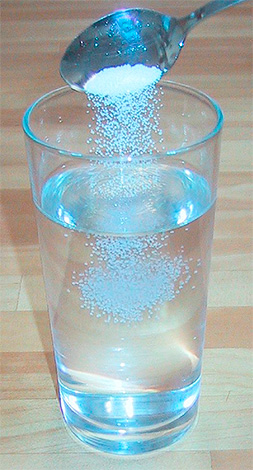
To relieve a toothache, rinse your mouth with liquid with a temperature that feels warm (on the verge of hot), but neither the gums, nor the tongue, nor the cheek were burned from the inside. You can use for this simple water, water with salt or soda (per liter of water a teaspoon of salt), or black tea.
The more often rinsing is performed and the longer each “session” lasts, the better the effect.For example, you can use to rinse a glass of liquid every hour during the day. In no case can not warm the place of inflammation from the outside - a heating pad or, as some do, leaning your cheek against the radiator.
With a strong toothache, warm rinses will provide only a partial anesthetic effect and will help for a short time. At the same time, this method does not have any side effects, and it can be safely used during pregnancy at any time.
Pharmaceutical analgesics permitted for pregnant women
Painkillers - a much more effective remedy for toothache, rather than rinses and various popular recipes. During pregnancy, they should be used especially carefully (after consulting with a doctor), but they allow you to completely relieve sometimes even severe toothache.
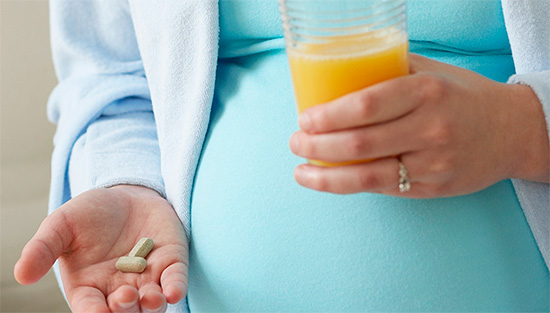
Of these funds allowed for use during pregnancy, you can drink, for example, the following:
- Paracetamol - this drug is considered the safest during pregnancy. Although paracetamol is not a strong analgesic, but it helps quite well, even if the teeth hurt a lot.
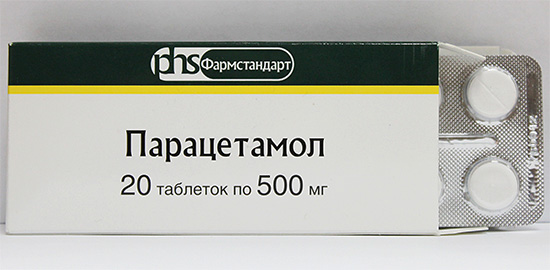
- Aspirin, which is taken only as directed by a physician. With certain reservations, aspirin is allowed in the second trimester of pregnancy. It does not completely numb the tooth, but reduces the pain to a tolerable limit.
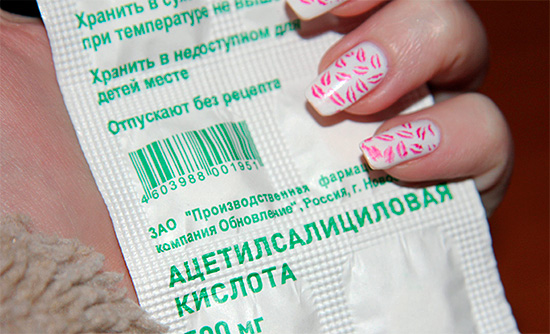
- Analgin is similar in its properties to Aspirin, but has a more pronounced analgesic effect. Nevertheless, Analgin has a number of serious side effects, due to which the drug is banned in many countries of the world (but for some reason not in Russia).
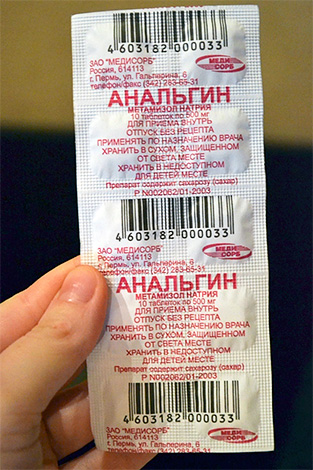
- Nurofen - his doctor in exceptional cases may prescribe to reduce toothache in the first or second trimesters of pregnancy.
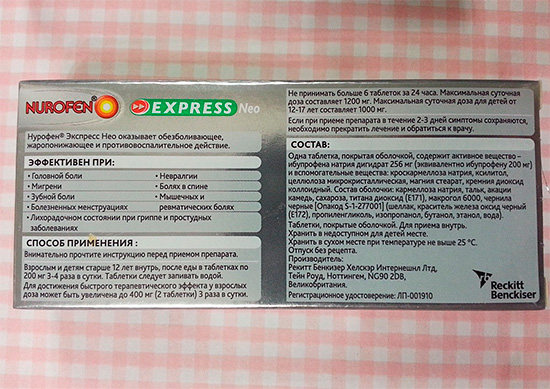
But again, the reception of these funds during pregnancy must be coordinated with the doctor. But powerful drugs, such as Ketorol, Ketanov, Ketorolac or Dolak, are strictly forbidden to take during pregnancy.
Acute toothache during pregnancy can be relieved with novocaine - the solution is simply dropped onto the sore area of the gum next to the tooth, into the carious cavity or moistened with a cotton swab, which is then applied to the tooth. To use this tool you need an indication of the doctor, but in general it can be considered fairly safe.True, novocaine is not effective in all cases.
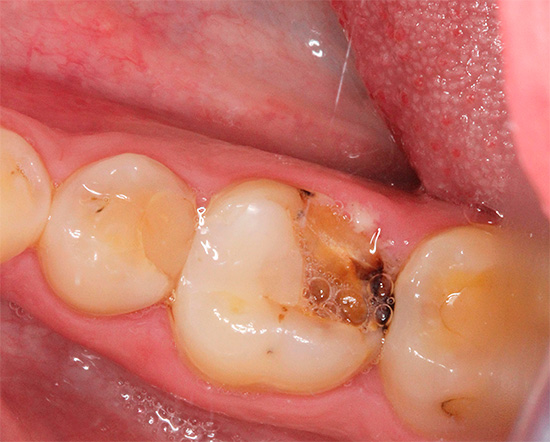
Feedback
“I myself the first three weeks, when pain appeared in my lower tooth, I tried to remove it with Nimesil. A good pain killer, it is even prescribed for children, so I was not even afraid to use it. But it turned out that it is impossible to drink it during pregnancy!
As I learned about it, I spat on everything and went to the doctor. And what do you think? Even the nerve was not removed. Put a seal and that's it. It was a little painful, the doctor did not want to prick the painkiller, and I was also afraid. But a minute to suffer - it's not forty weeks to go with a toothache. And so half an hour in the chair and everything, there is no toothache. "
Vika, Moscow
Folk painkillers and anti-inflammatory drugs
Specifically, there are no painkillers among popular recipes - all of them are designed to only slightly alleviate inflammation, as a result of which pain is slightly reduced.
Note the most common and at the same time fairly safe. folk remedies for toothacheThe effectiveness of which has been tested in practice and which can be quite well applied during pregnancy:
- Fir and sea buckthorn oils - they are moistened with a cotton swab and applied to the sore tooth;
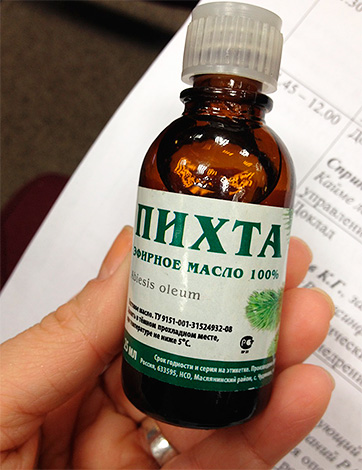
- The salt solution, which is used in the form of heat to rinse the mouth;
- Decoctions of anti-inflammatory drugs: sage, chamomile, coltsfoot leaves, oak bark, yarrow herb, train and peppermint.
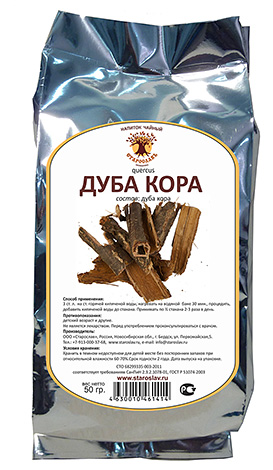
It is necessary to do rinsing by such means as it was written above about warm rinses, and with the same frequency. However, they will be useless in case of medium or deep caries, that is, in the absence of soft tissue inflammation (in this case, you can use pure water to flush the irritant out of the carious cavity), or if a penetrating wisdom tooth hurts without inflammation of the gums.
Feedback
“It was very scary to call the dentist and go for treatment in the third trimester. I rinsed my mouth with a decoction of chamomile, put a mummy, but nothing helped. The pain almost did not subside. Then she decided, called and signed up to the clinic.
She came the next day, the doctor diligently asked everything - what are the periods of pregnancy, what are other diseases, were there any allergies. He pricked quite a bit, said he needed to be patient.I suffered, but nothing particularly hurt. Apparently, anesthesia worked well.
He fumbled for a long time, removed the nerve, put a temporary filling. After that, the tooth is a bit nale, but not much. A day later, they were completely sealed, already without anesthesia and completely without pain. I was more afraid, actually. ”
Tanya, Orenburg
What and why during pregnancy can not be used
In addition to the above powerful drugs, prohibited during pregnancy (Ketorol, Ketanov, etc.), the pain in the teeth can not be eliminated by the following means:
- Honey, which only contributes to the development of caries, representing a nutrient substrate for bacteria.
- By warming the inflamed area outside - this will only lead to an even greater progression of inflammation.
- Applying Aspirin tablets directly to the gum. Because of this, a so-called aspirin burn may develop.
- Intake of alcohol inside. Here, perhaps, everything is clear and without comment.
In addition, it is absolutely useless to apply fat to the gums, to tie garlic on the wrist, to read plots and prayers for toothache - oddly enough, but in rural areas such techniques are still in use.
But the main thing that cannot be done by a pregnant woman if she has a bad toothache is to pull a visit to the doctor. Moreover, it is the dentist who will help not only relieve the toothache of the expectant mother, but also, in fact, protect the fetus from the negative impact of possible complications, which often occur in the absence of timely treatment of the affected tooth.
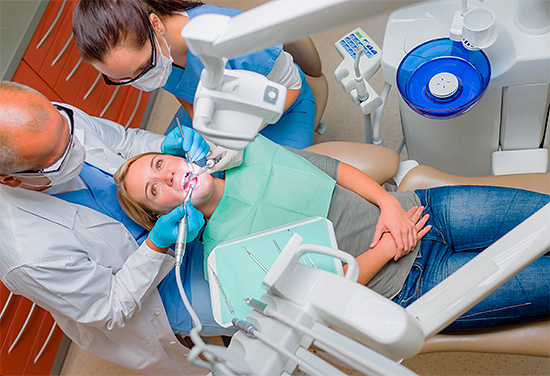
If a pregnant woman has a toothache: what will the doctor do
It is important to understand that in pregnant women the teeth hurt for the same reasons as all other people: caries and the associated destruction of the hard tissues of the tooth, inflammation of the pulp, difficult to penetrate the wisdom tooth, etc.
The only difference is that during pregnancy, the teeth can break down faster than during other periods of life - due to the lack of mineral components in the saliva, which are spent on the formation of the skeleton of the future baby. This means that instead of avoiding a visit to the dentist during pregnancy, on the contrary, he should strive to get an appointment so that he could detect the lesions in time and repair them even before the teeth are seriously ill.
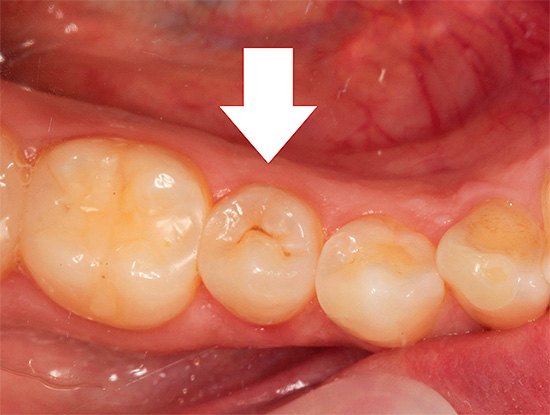
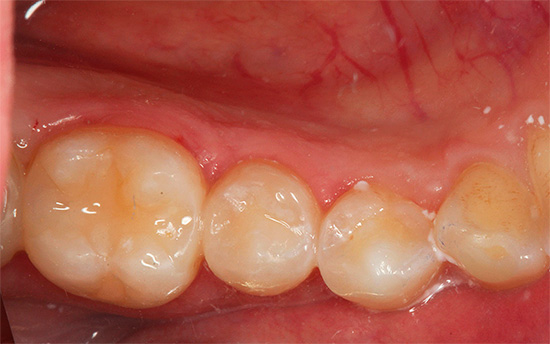
Already in the dental office, if necessary, the doctor will conduct anesthesia with such analgesics that are safe for the pregnant woman and her fetus.After this, any manipulations, from the installation of the filling to the removal of the nerve, will not cause pain.
But the main thing: the doctor not only calms the toothache, but also protects against the development of severe complications, far more dangerous than caries. It is much easier and safer during pregnancy to put a filling in time or, in extreme cases, to remove a nerve from a tooth, than to subsequently treat an abscess or odontogenic osteomyelitis of the jaw.
Therefore, if a tooth ache, feel free to call the dentist, regardless of the gestational age. Your inaction in such a situation is much more dangerous than even if unpleasant, but timely treatment.
During what periods of pregnancy you can’t treat your teeth categorically, and which ones can?
Useful video about the risk of caries during pregnancy

